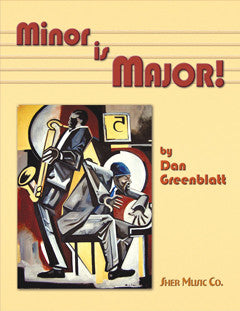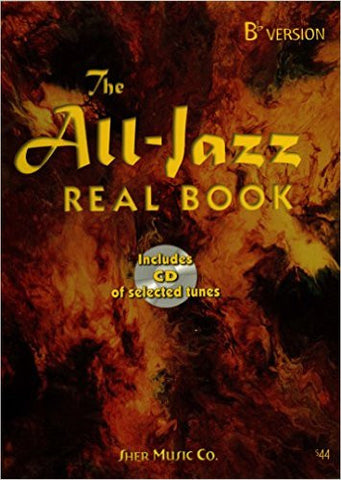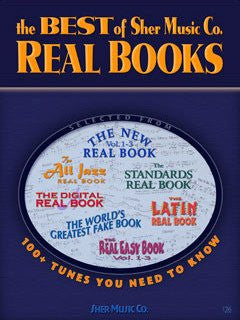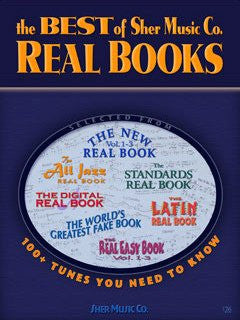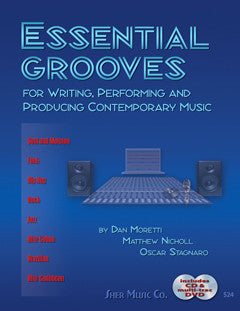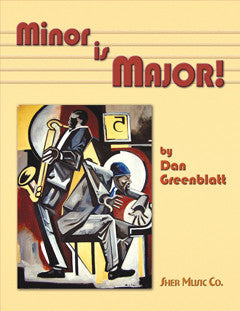
Minor is Major! UPC 1883217776
Minor is Major by Dan Greenblatt Minor is Major! is the most comprehensive book ever published on mastering minor key harmony! In jazz, in order to improvise, one needs a clear understanding of harmonic structures. Minor is Major! is a thoughtful and thorough examination of chords, scales, and how they work. And in my opinion, it will be an invaluable source of important and useful information to any serious student of jazz improvisation.íñ íï George Cables In both a theoretical and practical sense, Minor is Major! fills a gaping hole in jazz education pedagogy. Dan Greenblatt's exhaustive study of the harmonic minor sound, and its application over a wide range of harmonic progressions, will give improvisers more insight into playing changes in general, and bebop in particular.íñ íï Jim Snidero Do you get a bit fuzzier on what notes and patterns to use when tunes leave the major key? Here's the solution! Minor is Major! will give you hundreds of ways to negotiate your way through chord progressions in minor keys, including scale choices, 'hidden chords' within those scales, and melodic patterns based on the intervals in the scale. Topics Covered Include: Includes a clear explanation of the harmonic and melodic minor scale, including a detailed analysis of their theoretical properties and their many uses in improvisation. Includes analysis of how the diminished, whole-tone, pentatonic, hexatonic, and hybrid scales can also be applied to minor-key progressions. Includes etudes to help the reader hear and play melodic ideas derived from the scales in common harmonic contexts. Includes an extended Appendix of exercises to help the reader gain mastery over the scales. Minor is Major! contains numerous transcriptions of great jazz improvisers such as Charlie Parker, John Coltrane, Bill Evans, Clifford Brown, McCoy Tyner, Joe Henderson and Chick Corea, and important jazz composers such as Billy Strayhorn, Horace Silver, Dizzy Gillespie, and Wayne Shorter, showing how they make use of the harmonic and melodic minor scales. 150 pages! Sample Pages Pages 4-5 Pages 11-13 Pages 127-128 Endorsements In jazz, in order to improvise, one needs a clear understanding of harmonic structures. Minor is Major! is a thoughtful and thorough examination of chords, scales, and how they work. And in my opinion, it will be an invaluable source of important and useful information to any serious student of jazz improvisation.íñ íï George Cables In both a theoretical and practical sense, Minor is Major! fills a gaping hole in jazz education pedagogy. Dan Greenblatt's exhaustive study of the harmonic minor sound, and its application over a wide range of harmonic progressions, will give improvisers more insight into playing changes in general, and bebop in particular.íñ íï Jim Snidero To me there is not enough emphasis on harmonic minor and other minor modes. This book investigates them thoroughly and makes it clear.íñ íï Jerry Bergonzi I loved reading Minor is Major!. It is informative in its explanations and descriptions of the uses of the harmonic and melodic minor scales in jazz. I particularly liked seeing how Bird, Cannonball and Coltrane improvised on those scales in their own playing. Dan Greenblatt's writing and examples are clear and inspiring. After reading the first twenty pages, I sat down to play and was immediately hearing and conceiving ideas in the harmonic minor mode. I am a convert to the theory that MINOR is MAJOR!íñ íï Michael Wolff Finally, a straight-forward and organized approach to understanding minor harmony. Minor is Major! highlights the point that Minor harmony is inescapable, elusive, often misunderstood, yet it is important in a majorly big way! Now we have a wonderful experiential text for the study and teaching of the adventures of the mysterious world of minor.íñ íï Rachel Z An amazing reference, well written and so thoroughly organized! It helps educators classify the information that we already know, and helps students learn the information in a progressive and organized manner, which is what classical methodology has done for centuries and that somehow 'jazz' still struggles to do.íñ íï Alexis Cuandrado The importance of truly understanding the information in this book is invaluable. It will help you delve deeper into much of the soul of what every world culture feels and express through the use of minor modes.íñ íï Billy Harper

